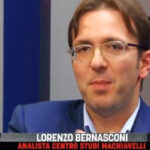For thirty-three years in Băile Tușnad, a tiny village in Romania's Transylvania inhabited mostly by ethnic Hungarians (who, with about 1.4 million citizens, represent the country's largest ethnic-linguistic minority), a festival has been held that attracts thousands of Hungarians not only from Romania and the neighboring motherland, but from all over Europe and beyond.
It is a unique event in which politics, cultural insight, music, food and entertainment are amalgamated in an unprecedented way, resulting in an extremely diverse, yet harmonious and engaging mix, culminating in the speech on Saturday morning in which Prime Minister Viktor Orbán paints a picture of the present condition of the Magyar nation, but more importantly, outlines his vision of tomorrow's Hungary and the cornerstones of his program for the months and years to come.
This year, at the kind invitation of the Wacław Felczak Foundation, I was given the honor of participating in one of the many debates organized in the festival setting, engaging with Hungarian and Polish colleagues on the future of cooperation between the patriotic and sovereignist forces in our countries; this gave me the opportunity to spend an entire week among debates, concerts, traditional dances, and DJ sets, carefully observing every detail of this event so far from what we are used to in Western Europe, and I drew from it two lessons that I would now like to offer to the Italian conservative world.
First lesson: the 60s-style rally has had its day, it is time to move beyond it
It is no mystery how, since World War II, very little has changed in the way Italian politicians handle vis-à-vis their electorate: with the exception of the ritual selfie, which has entered the political liturgy of all the forces belonging to the constitutional arc a few years ago, small or large party meetings are mostly resolved in an interminable series of speeches by exponents in search of a photo opportunity and the much coveted fifteen minutes of celebrity; how much the domestic public actually listens to them, or how much they seek refuge instead in smartphones, chats with neighbors and the inevitable refreshment stations, is unknown: however, the ever-present background buzz easily suggests that the average level of attention is not the highest.
In contrast, the Hungarians opted for an entirely different approach: very few (and short) rally speeches, many panels-even simultaneous ones-on specific topics, hinging on an agile and dynamic debate among experts of various backgrounds and nationalities, so as to attract an audience diverse in education and interests, offering each one the chance to delve into the issues that matter most to him or her.
And, above all, plenty of opportunities to laugh, make friends and experience authentic community. In Băile Tușnad one is surrounded by strangers, yet one feels at home: families with children, young and very young (many, very many! ), as well as the elderly and middle-aged; traditional dance enthusiasts and techno music devotees, violinists and metalheads, ordinary people and top state officials, all are united by the desire to have fun, dance, and meet old and new friends beyond any social or economic barriers, because belonging to a single people and the festive spirit that permeates the town represent a bond stronger than any differences.
A kind of Oktoberfest, in short, the way the Bavarian event probably was before it became a commercial phenomenon: with, in addition, the ability to feed not only the stomach of the participants, but to refresh their intellect and soul as well.
It is a model that has no equal on Italian soil, although Atreju - the Fratelli d'Italia convention - has tried, at least in the last edition, to go in this direction; but there is still a long way to go.
Second lesson: Ethnonationalism is not an absolute evil.
On the contrary; if anything, in its present state, it is the only type of nationalism that has proved able to resist the terrifying homologating pressure exerted by globalist liberal-capitalism. This is, I am aware, an uncomfortable and slippery subject in our country, which has lived through the tragic years of fascism, the deportation of Jews, and the Nazi occupation.
Talking about "races" or "ethnic groups" is still a taboo today (although it is even mentioned in the Constitution of the Italian Republic), and this is amply demonstrated by the rain of controversy that has hit Roberto Vannacci, now a member of the European Parliament, for some considerations - indeed, from my point of view, absolutely legitimate and to a large extent even shareable - about the difference between Italian citizenship and Italian-ness in a phenotypic and ethno-cultural sense.
However, as well exemplified by the Galileo Galilei affair, avoiding tackling an issue just because it creates embarrassment and challenges dogmatic assumptions - the accuracy of biblical cosmology then, the non - existence or irrelevance of any difference between ethnic groups today-never proves, in the long run, to be a great strategy.
However, I think it is essential to clarify what is to be understood when we speak of ethnicity, and to do so we need to go back to the Greek ethnos from which the Italian term originates. Ethnos, among the Greeks, indicated a people, a nation: that is, it identified a group of individuals united by a complex web of ties that were simultaneously biological, historical, linguistic and cultural.
The demonization of the term over the past few decades is linked to a process - the genesis of which can actually be traced back as far as the 19th century - of gradual but inexorable shift in meaning that has seen an emphasis on the biological-genetic component at the expense of all others, thus coming to assimilate to a large extent the meaning of the term ethnicity to that of the term race, and thus to share with the latter the sad fate of expulsion from public debate.
Nevertheless, it is to the original meaning of ethnos that I am referring here whenever I use the word ethnicity or its compounds: ethnicity (or people), that is, as a community of people who share the same cultural and spiritual universe, and in which the sharing also of physical and genetic traits is yes an undeniable fact whose historical reasons can be easily understood, but nevertheless it does not represent the main foundation or unifying factor.
The way a people perceives and thinks about itself plays a key role in determining its destiny: the extraordinary resilience of the Hungarians, who have managed to survive through the centuries without ever being assimilated by their neighboring nations - far more populous and powerful - is the child of a conception of "Magyar-ness," deeply rooted in the collective imagination, not based on the legal-bureaucratic idea of citizenship so much in vogue in Western European countries, but rather on belonging to a community that - even when scattered to the four corners of the world - remains united by a spiritual bond based on a common language, culture and history.
Unlike in Italy, one does not become Hungarian-at least in the spiritual sense of the term-simply by acquiring Magyar citizenship: it is a much longer and more complex process, to complete which perhaps a lifetime would not be enough for those who were not born, or did not arrive at a very early age, within that national community.
It seems easy, of course, following our Western prejudices, to blame this difficulty of access by branding it as closure and a potential source of discrimination and inequality: however, that would be a very serious mistake. The bristling path that must be taken by those who wish to venture deep into Hungarian culture and society does not in fact depend on a hypothetical arbitrary "closure" of a political nature, but rather on historical and exquisitely pre-political factors, starting with the extreme complexity of the Magyar language, which is incredibly difficult to learn in adulthood, thus constituting a kind of natural barrier.
The uniqueness of an idiom that is not derived - unlike almost all the languages of contemporary Europe - from the Indo-European linguistic strain has undoubtedly played a key role in the development and preservation of Magyar identity over the centuries.
A second factor, profoundly linked to the language question, is then the specificity of the local culture, which, although it has drawn extensively over time on stimuli and suggestions from other European nations, precisely thanks to the language barrier has resisted all forms of assimilation, even where, through the various vicissitudes of history, Magyar communities have found themselves living as minorities in lands dominated by other peoples; this has enabled a nation whose roots go back into the mists of time to preserve its customs and traditions virtually intact, albeit gradually enriched and complemented by contributions and innovations from elsewhere.
This makes Magyar culture extremely rich and, for that very reason, difficult to understand thoroughly: but, after all, as three millennia of epic fiction from Gilgamesh to the Homeric poems to Tolkien teach us, in life what is precious is never easily won.
Conclusion: what we Italians need to learn
But let's come to us. Italian culture and language, while extremely rich and varied, for a thousand historical reasons present neither the same compactness nor the same barriers to entry as Magyar ones; it is a difference we must take into account, of course, and one that undoubtedly has both positive and negative implications.
However, it seems to me that, in spite of the natural "permeability" of our national culture, for the past thirty years in Italy there has been a literal race to completely dismantle our idiom, our traditions and our very society in the name of welcoming and including and those who land (legally or not) in our country to move there permanently; symbols of Christianity are hidden, Dante and Manzoni are censored, and statues of Renaissance artists are covered up so as not to offend real or presumed sensitivities of those arriving from the other side of the world.
And even when, from the right, an attempt is made to restore dignity to the concept of nationhood (meritorious work, let's be clear), it is almost always done on the basis of a purely bureaucratic idea of Italian-ness, according to which, that is, belonging would be based substantially on the mere possession of a passport. Which, if we look at the condition of major Italian cities, which are literally dying of immigration, is clearly not enough. morendo d’immigrazione, evidentemente non basta.
To the formalism and bureaucraticness that characterize modern nationalism in many Western European countries I want to contrast, in order to explain the Hungarian model, the concept of ethnonationalism, understood as the recognition and promotion of a national community united by cultural, spiritual and historical-linguistic factors before legal-bureaucratic ones.
And I would like to invite the world of Italian politics to take a cue and inspiration from the Magyar country, to finally infuse momentum and depth into an attempt to think Italian-ness that so far has not been able to go much beyond good food and la dolce vita.
Such a paradigm shift would mean, to be sure, admitting that yes, there are probably indeed individual cases of young children of immigrants who feel Italian and have embraced our culture in toto, and acknowledging that denying them citizenship on the basis of the byzantinisms of our legislation is to all intents and purposes a mistake.
Significa, però, anche riconoscere che sul nostro territorio vivono molti, moltissimi altri immigrati e figli di immigrati cui abbiamo commesso l’imperdonabile errore di concedere la cittadinanza italiana sulla scorta del soddisfacimento di requisiti meramente formali, ma che non si sentono, né vorranno mai sentirsi, parte del nostro ethnos, del nostro popolo.
People who see Italy as a land of conquest and who do not feel the slightest desire to integrate, but who aspire, if anything, to impose their idea of community on all of us, as soon as they have the material strength to do so.
It means realizing, once it is established that a Nation is much more than a collection of individuals united only by the possession of the same passport, that anyone who wants to continue to live in a cultural and value universe that historically belongs to Pakistan, Nigeria or the Maghreb countries, must stay there or at least return as soon as possible, for his or her sake and ours.
Because being welcomed into a national community is a precious gift that one must know how to deserve and should never, whatever many jurists who know everything about codes and nothing about reality say, be considered a right or a mere formality
Research Fellow at the Machiavelli Center for Political and Strategic Studies, formerly worked as a consultant at European Parliament, Presidency of the Council of Ministers, Chamber of Deputies and Ministry of Economic Development. M.A. in Philosophy at the Catholic University of Milan.









Scrivi un commento